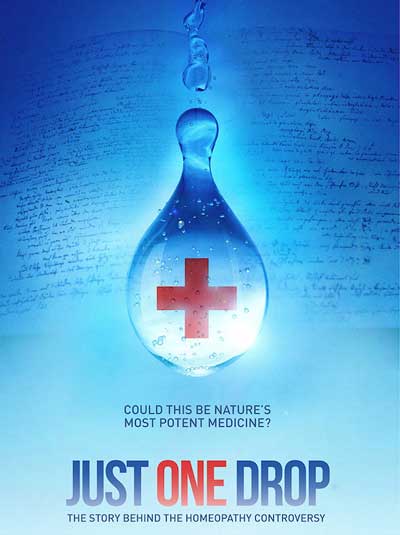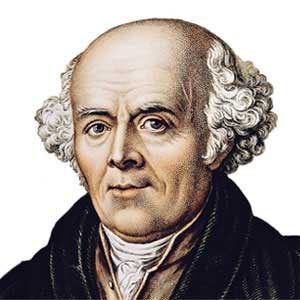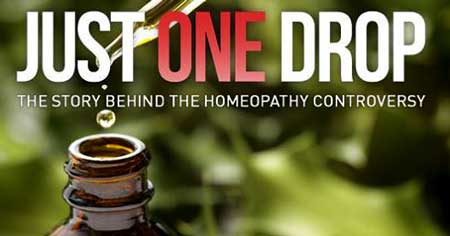Film (2017)
Documentary
Producer, Director and Co-Writer: Laurel Chiten
Thursday, December 14, 2017, 7:30pm
Regent Theatre
7 Medford Street, Arlington, MA
Film Editing: Bernice Schneider
Original Music: P. Andrew Willis

Though at one point the alternative medical practice known as homeopathy was considered mainstream – its popularity, in the United States at least, peaked around the turn of the twentieth century – it remains immensely popular worldwide though it is considered suspect by many medical practitioners.
This varied, dense, informative and well-constructed documentary packs together a revealing history of homeopathy, evocative stories of cure, along with a vivid sense of that controversy which surrounds it.
Filmmaker Laurel Chiten has provided, as a result of many years of research, filming and post-production, a film which, in just over an hour, delivers a very vivid outline of its subject and which energetically invites its audience to probe further.
The film switches through a rich tapestry of narratives in a way that is compelling and dramatic. Underlying the rest, perhaps as the most persuasive, is the story of the family of an autistic child, Lucas Korn, who, at the age of four or five, after essentially being given up for lost, is treated homeopathically, with quite remarkable results. Extensive interviews with Nancy, Lucas’ mother, give weight to the drama and offer a compelling sense of the stunning effects of the therapy within a context in which a placebo effect is extremely unlikely.

in “Just One Drop”
Woven throughout is a history of homeopathy, beginning with the story of Dr. Samuel Hahnemann who, in seventeenth century Germany, came up with the idea. By diluting toxic substances, then succussing (shaking) those dilutions, Hahnemann discovered remedies that helped to heal patients who exhibited symptoms which resembled those produced by ingesting the undiluted toxic substances. The notion that, with proper preparation, like treats like thus came to govern Hahnemann’s approach and became the distinguishing idea of homeopathy.
Frequently diluted to the extent that no actual chemical effects of the substance is possible, the mechanisms of homeopathy’s actions remain controversial and not at all understood. But the film takes pains to demonstrate that not only is a population of devoted homeopathic practitioners, patients, and medical doctors who also practice homeopathy convinced of its positive effects, but that unwitting scientific and medical practitioners, not originally sympathetic at all, are occasionally persuaded by overwhelming evidence of its capacity to heal.

Founder of Homeopathy
One of these is physicist Alex Tournier, who with Rachel Roberts heads up the Homeopathy Research Institute, the aim of which, ultimately, is to demonstrate, through carefully run clinical trials, the evidence for homeopathic cure, and, as well, to support research into the as yet completely obscure nature of its operation. Though their mission is serious, they remain aware of the challenges to verifying homeopathy’s curative effects and a widespread tendency to regard it as quackery. One of the many charming scenes in the film shows Tournier giving a talk to members of the British parliament, indicating with self-deprecating humor the obvious intellectual vulnerabilities of the cause which he promotes, as a result generating sympathetic laughter rather than scorn.
In its own soft-pedaled way, the film suggests the pervasiveness of the homeopathic stance by invoking the case of the British royal family which has made use of it for decades. Obviously not an argument for intellectual proof of its efficacy, the film notes this as a curiosity about homeopathy’s pervasiveness despite its as yet unexplained efficacy.
A visit to India explores the widespread use of homeopathy and cases in which it demonstrates vivid results. A young girl bears testimony to the conditions it has cured for her; its pervasiveness and widespread use is evident and the film takes pains to show this as a result of efficacy not simply blind faith.

“Just One Drop”
A large part of the second half of the film is devoted to a judgment made against homeopathy by an Australian agency which had some years ago taken up the mandate to assess its efficacy. Coming down hard in the end, the agency’s judgment, investigated by a homeopath who with grit and determination uncovers the not very objective stance of the assessors, is shown to be flawed. It’s the film’s nod in the direction of medical politics, and though it devotes a bit too much of its real estate to this dispute, the issue is thoroughly unpacked.
In the same political vein, the film documents how pervasive homeopathy was in the United States at around the turn of the twentieth century. Demonstrating then how the American Medical Association consolidated the biases of a new breed of doctors against homeopathy, the film brings vividly to light how the once sought after methodology became seen as charlatanism among many medical practitioners.
Though the film does present a variety of points of view, it is more of a gentle polemic for considering the virtues of homeopathy than a strictly objective assessment of the practice, its proponents and detractors. That is entirely fine. The Al Gore films, An Inconvenient Truth (2006) and An Inconvenient Sequel (2017), also documentaries, are also clearly polemical on the matter of global warming. And most everything that Michael Moore does, included as well under the category of documentary, has the same kind of ideological bent.

There are almost no films about homeopathy, and this one – potent, charged and intelligently put together – clearly answers a need for a deeper public look at a medical practice which remains controversial despite its many adherents. A prod and a taste, it is an introduction not a ten part Ken Burns style portfolio of every possible avenue to the subject. But with economy and style, Chiten and her team have produced a work that should turn heads and get people to take a closer look at this unexplained but compelling therapy.
Music by Boston-area composer P. Andrew Willis is by turns fanciful, energetic, dramatic and reflective and adds a stimulating dimension to an already cogent, intelligently written, and compellingly edited work.
This film is initially being released using Theatrical on Demand with Gathr Films in the United States, by involving the participation of local hosts or “movie captains” who promote screenings in their communities. It’s an interesting and seemingly effective approach to rollout distribution. The first Boston-area screening of Just One Drop was held at the Kendall Square Cinema on 10/25/2017 and it was sold out. The next Boston screening – don’t miss it, details above – will be in Arlington, MA on 12/14/2017. Other screenings, around the U.S. and internationally, are also listed through this link. (If you are interested in bringing Just One Drop to your community, you can also find details for doing so at www.justonedropfilm.com.)

– BADMan
What a beautifully woven review of Just One Drop. Thank you!
Proud to have hosted a screening in the UK.